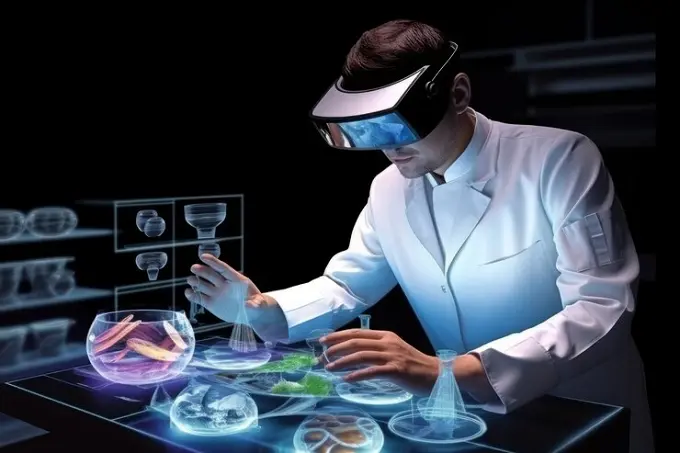Artificial intelligence (AI) is transforming many industries, and healthcare is no exception. The integration of AI into healthcare has the potential to revolutionize the industry and improve patient outcomes.
This blog post will provide an overview of how AI is impacting healthcare.
Understanding AI and Healthcare
AI refers to computer systems that are designed to perform tasks that typically require human intelligence, such as visual perception, speech recognition, and decision-making. In healthcare, AI is being applied in many ways:
- Natural language processing can extract meaning from clinical notes and patient records.
- Machine learning algorithms can be trained on large datasets to detect patterns and make predictions to aid in diagnosis and treatment.
- Robotics can assist in surgeries and other clinical procedures.
The healthcare industry deals with vast amounts of data from electronic health records, medical imaging, genomics, and wearable devices. AI can help make sense of this data to improve clinical decision-making and healthcare delivery.
The Impact of AI on Healthcare
Some key ways AI is revolutionizing healthcare include:
- Diagnosing diseases – AI imaging tools can detect tumors and analyze medical scans for abnormalities faster and more accurately than the human eye.
- Personalized treatment – AI can analyze a patient’s specific genetics, lifestyle, and medical history to create personalized treatment plans.
- Drug development – Machine learning can identify novel drug candidates and accelerate clinical trials.
- Robotic surgery – Robots can carry out minimally invasive surgery with enhanced precision, flexibility, and control.
- Virtual nursing assistants – AI chatbots can offer patients information on demand and act as an automated triage service.
- Administrative workflow optimization – AI can automate paperwork, improve patient wait times, and reduce human errors.
Benefits of AI in Healthcare
Implementing AI in healthcare offers many benefits:
- More accurate and faster diagnoses.
- Personalized medicine tailored to the patient.
- Improved patient outcomes and satisfaction.
- Increased efficiency and cost savings.
- Reduced medical errors.
- Improved clinical decision-making.
Case Studies
One hospital that integrated an AI system saw a 50% reduction in patient wait times and a 10-20% decrease in length of stay.
Researchers developed an AI diagnostic tool for brain tumors that was 94% accurate, compared to physicians who were only 84% accurate.
Challenges and Limitations
Some key challenges to implementing AI in healthcare include:
- High upfront costs of AI systems.
- Integration with legacy health IT systems.
- Potential algorithmic biases.
- Cybersecurity risks associated with patient data.
- Clinician acceptance of AI recommendations.
- Ethical challenges around patient privacy and consent.
AI adoption in healthcare is still in the early stages, but is rapidly accelerating. As algorithms become more sophisticated, AI has the potential to dramatically improve patient outcomes and transform the healthcare landscape. Key trends to watch include predictive analytics, robot-assisted surgery, and the use of AI for early disease detection and prevention. While challenges remain, the future is bright for the continued evolution of AI in healthcare.
Conclusion
AI is already demonstrating enormous potential to improve clinical care and patient outcomes. As healthcare organizations continue to adopt AI tools, they can reduce costs, optimize workflows, and provide more personalized care for patients. While AI cannot replace human clinicians entirely, this technology can enhance the abilities of healthcare workers and address some of the industry’s most pressing challenges. The future of AI in healthcare is an exciting one, with untold benefits for patients, providers, and healthcare systems as a whole.


